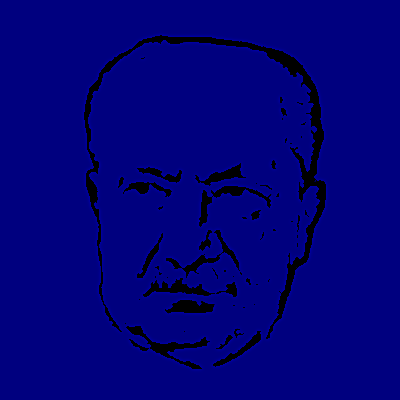Chuang-tzu's contribution to Heidegger's thought: the cultivation of the useless.
Main Article Content
Abstract
Heidegger's interest in Asian thought is something recognized by the interpreters of his work. What is sought to be exposed here is part of that interest, analysing and contextualizing the presence of Chuang-tzu where Heidegger brings it to the collation with the purpose of interpreting the meaning of the useless. For Heidegger, the useless designates the specificity and character of philosophy and meditative thinking, while allowing human freedom and disposition to be thought from a non-utilitarian perspective of the technical world. In Chuang-tzu, Heidegger found a privileged interlocutor, using his parables to think of another way of realizing human habitation that requires the need to present and promote the cultivation of the useless.
Downloads
Article Details

This work is licensed under a Creative Commons Attribution-NonCommercial-NoDerivatives 4.0 International License.
Authors retain ownership of copyright and reproduction rights.
Authors may make other independent and additional contractual arrangements for non-exclusive distribution of the version of the article published in this journal (e.g., inclusion in an institutional repository or publication in a book) as long as they clearly indicate that the work was first published in this journal.
Authors are allowed and encouraged to publish their work on the Internet (e.g. on institutional or personal websites) after the review and publication process, as it may lead to productive exchanges and to a wider and faster dissemination of the published work.
References
Chuang-Tzu. Zhuang zi - Maestro Chuang Tsé. (Tr. I. Preciado). Kairós, Barcelona, 1996.
Chuang-Tzu. Zhuang zi jin zhu jin yi. Ed. Chen Guying. Shangwu, Taibei, 1977.
Heidegger, Martin. "Abendgespräch in einem Kriegsgefangenenlager in Russland zwischen einem Jüngeren und einem Älteren". In Feldweg-Spräche 1944/1945. GA 77. Klostermann, Franfurt an Main, 1995. Pp. 203-245.
Heidegger, M. "Bild und Wort", In Zum Wesen der Sprache und zur Frage nach der Kunst (1950). GA 74. Klostermann, Frankfurt an Main, 2010.
Heidegger, Martin. "Die Armut". In Zum Ereignis-Denken. GA 73-1. Klostermann, Frankfurt an Main, 2013. Pp. 873-881.
Heidegger, Martin. La pobreza. Amorrortu, Buenos Aires-Madrid, 2006.
Heidegger, Martin. Einfuhrung in die Metaphysik. GA 40. Klostermann, Frankfurt an Main, 1983
Heidegger, Martin. Introducción a la Metafísica. Tr. A. Ackerman. Gedisa, Barcelona, 2001.
Heidegger, Martin. Überlieferte Sprache und technische Sprache. Erker, St. Gallen, 1989.
Heidegger, Martin. Língua de tradição e língua técnica. Tr. M. Botas. Passagens, Mafra, 1995.
Heidegger, Martin. Vorträge und Aufsätze. GA 7. Klostermann, Frankfurt an Main, 2000
Heidegger, Martin. Conferencias y artículos. Tr. E. Barjau. Odós, Barcelona, 1994.
May , Reinhard. Heidegger’s hidden sources - East asian influences on his work. Routledge, London-New York, 1996.
Petzet, Heinrich Wiegand. Encuentros y diálogos con Martin Heidegger 1929-1976. Tr. L. Langbehn. Katz, Buenos Aires, 2007.
Rentmeester, Casey. Heidegger and the environment. Rowman & Littlefield, Lanham, 2016.
Saviani, Carlo. El Oriente de Heidegger. Tr. R. Bouso. Herder, Barcelona, 2004.

